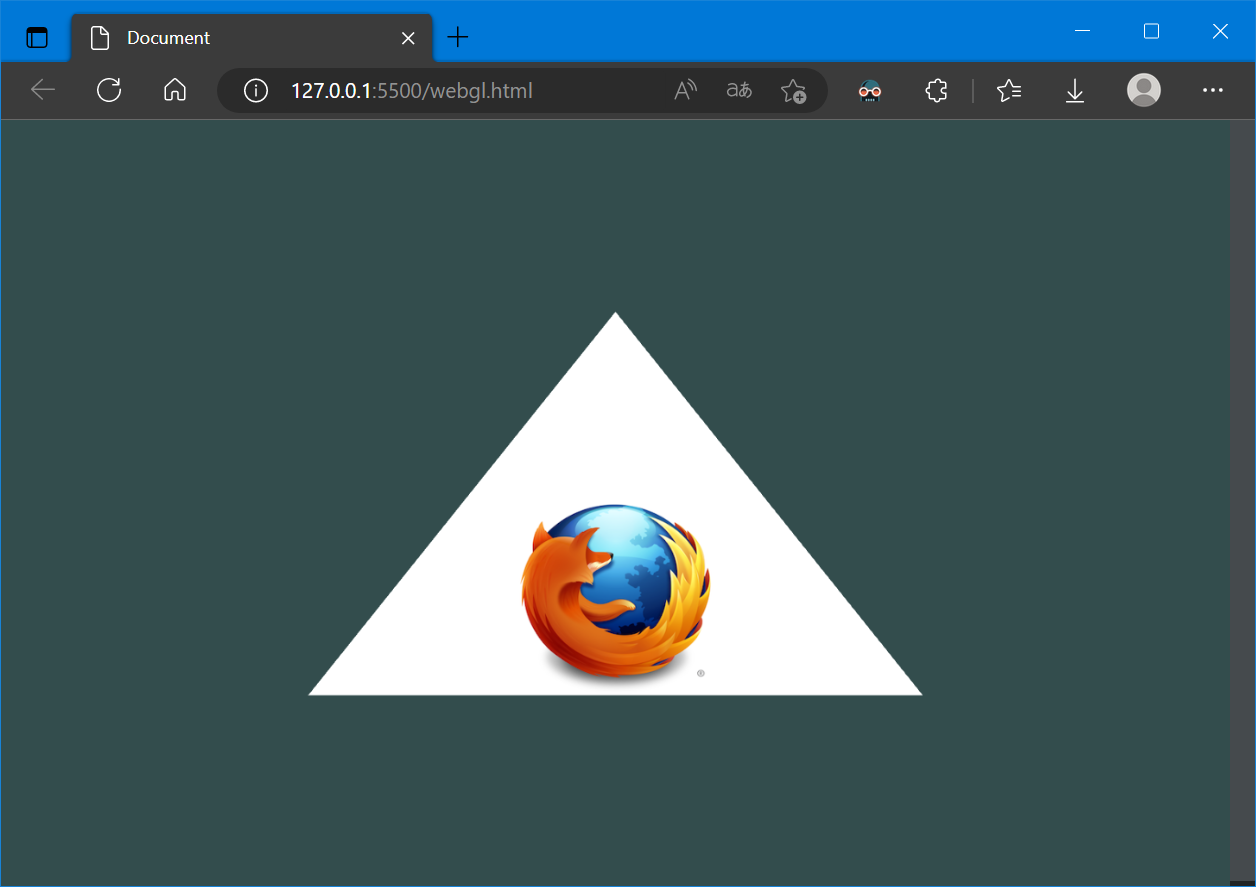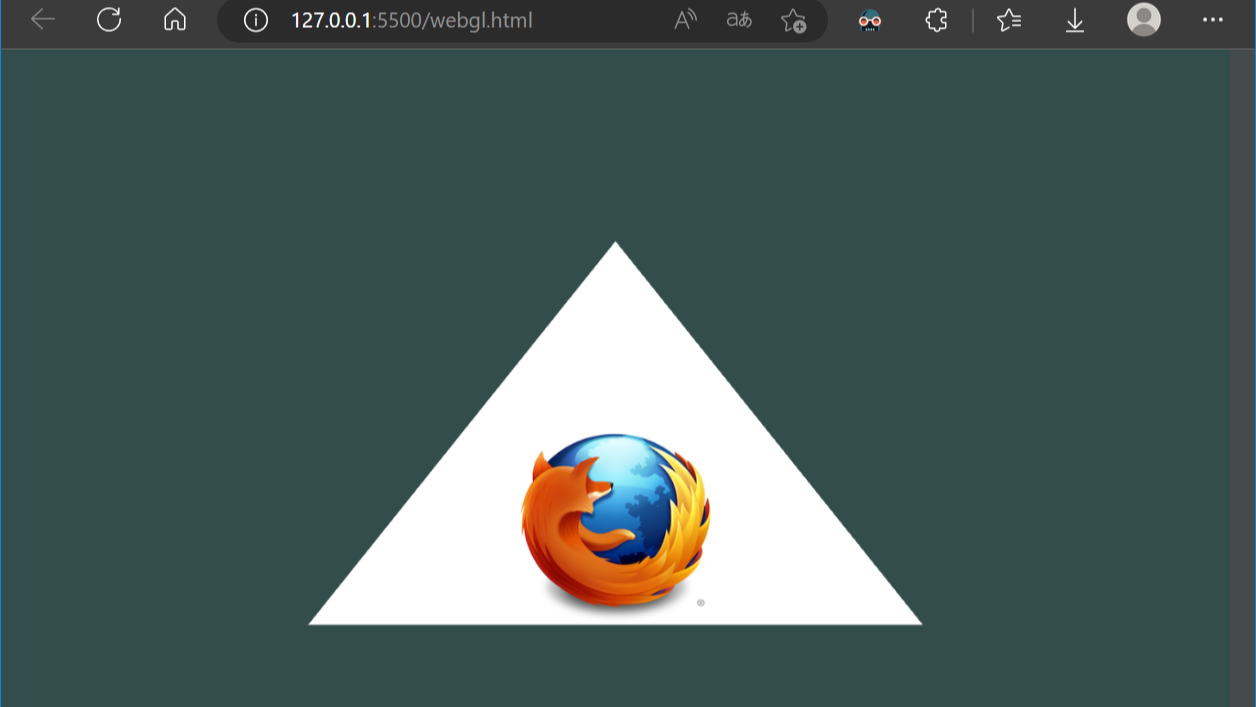Cesium渲染模块之Texture
1. 引言
Cesium是一款三维地球和地图可视化开源JavaScript库,使用WebGL来进行硬件加速图形,使用时不需要任何插件支持,基于Apache2.0许可的开源程序,可以免费用于商业和非商业用途
Cesium官网:Cesium: The Platform for 3D Geospatial
Cesium GitHub站点:CesiumGS/cesium: An open-source JavaScript library for world-class 3D globes and maps (github.com)
API文档:Index - Cesium Documentation
通过阅读源码,理清代码逻辑,有助于扩展与开发,笔者主要参考了以下两个系列的文章
渲染是前端可视化的核心,本文描述Cesium渲染模块的Texture
2. WebGL中的Texture
以下大致是一个最简的Texture的WebGL绘制代码(完整代码和数据见文末附录):
// 加载纹理坐标到GPU const textureCoordinates = new Float32Array([ -1.0, 0.0, 2.0, 0.0, 0.5, 2.0 ]); const textureCoordinatesBuffer = gl.createBuffer(); gl.bindBuffer(gl.ARRAY_BUFFER, textureCoordinatesBuffer); gl.bufferData(gl.ARRAY_BUFFER, textureCoordinates, gl.STATIC_DRAW); // 设置纹理坐标属性 textureCoordAttribute = gl.getAttribLocation(shaderProgram, "aTextureCoord"); gl.enableVertexAttribArray(textureCoordAttribute); gl.vertexAttribPointer(textureCoordAttribute, 2, gl.FLOAT, false, 0, 0); // 加载图片,图片加载后创建纹理 const image = new Image(); image.src = './cubetexture.png'; image.onload = function () { // 创建并绑定纹理对象 const texture = gl.createTexture(); gl.bindTexture(gl.TEXTURE_2D, texture); // 设置纹理参数 gl.texParameteri(gl.TEXTURE_2D, gl.TEXTURE_MAG_FILTER, gl.LINEAR); gl.texParameteri(gl.TEXTURE_2D, gl.TEXTURE_MIN_FILTER, gl.LINEAR_MIPMAP_NEAREST); gl.texParameteri(gl.TEXTURE_2D, gl.TEXTURE_WRAP_S, gl.CLAMP_TO_EDGE); gl.texParameteri(gl.TEXTURE_2D, gl.TEXTURE_WRAP_T, gl.CLAMP_TO_EDGE); gl.pixelStorei(gl.UNPACK_FLIP_Y_WEBGL, 1); // 生成纹理数据 gl.texImage2D(gl.TEXTURE_2D, 0, gl.RGBA, gl.RGBA, gl.UNSIGNED_BYTE, image); gl.generateMipmap(gl.TEXTURE_2D); // 激活纹理并绘制 gl.activeTexture(gl.TEXTURE0); gl.clear(gl.COLOR_BUFFER_BIT); gl.drawArrays(gl.TRIANGLES, 0, 3); }

WebGL或者说OpenGL中,纹理(Texture)通常是贴在物体表面的二维图片
参考上述代码,WebGL中纹理使用流程大致如下:
- 加载图片数据
- 创建纹理对象
gl.createTexture() - 绑定纹理对象
gl.bindTexture() - 设置纹理参数
gl.texParameteri() - 使用图片数据生成纹理
gl.texImage2D()、gl.generateMipmap() - 设置纹理坐标
gl.createBuffer()... - 在顶点着色器中传递纹理
- 在片段着色器中采用纹理
- (绘制时)激活纹理并绑定纹理
gl.activeTexture()
纹理参数gl.texParameteri()主要是设置采样方式、平铺方式等,具体可以参考:WebGLRenderingContext.texParameteri() - Web API 接口参考 | MDN (mozilla.org)
上述代码中使用到的gl.pixelStorei()用于图像预处理的函数,具体可以参考:WebGLRenderingContext.pixelStorei() - Web API 接口参考 | MDN (mozilla.org)
使用图片数据生成纹理的gl.texImage2D()方法的重载方法较多,目的无非就是实现各种图片数据的加载,具体可以参考:WebGLRenderingContext.bindTexture() - Web API 接口参考 | MDN (mozilla.org)
gl.generateMipmap()会为当前绑定的纹理自动生成所有需要的多级渐远纹理
更详细的流程和函数解释可以参考:纹理 - LearnOpenGL CN (learnopengl-cn.github.io)
3. Cesium中的Texture
Cesium源码中,对Texture进行了一些封装:
function Texture(options) { // ... gl.activeTexture(gl.TEXTURE0); gl.bindTexture(textureTarget, texture); gl.pixelStorei(gl.UNPACK_ALIGNMENT, unpackAlignment); // Source: ImageData, HTMLImageElement, HTMLCanvasElement, or HTMLVideoElement gl.texImage2D(textureTarget, 0, internalFormat, pixelFormat, PixelDatatype.toWebGLConstant(pixelDatatype, context), source); gl.bindTexture(textureTarget, null); this._texture = texture; this.sampler = defined(options.sampler) ? options.sampler : new Sampler(); } Texture.prototype.generateMipmap = function (hint) { // ... gl.hint(gl.GENERATE_MIPMAP_HINT, hint); gl.activeTexture(gl.TEXTURE0); gl.bindTexture(target, this._texture); gl.generateMipmap(target); gl.bindTexture(target, null); };
Texture还封装了以下函数:
Texture.fromFramebuffer = function (options) Texture.prototype.copyFrom = function (options) Texture.prototype.copyFromFramebuffer = function(xOffset,yOffset,framebufferXOffset,framebufferYOffset,width,height) Texture.prototype.isDestroyed = function () Texture.prototype.isDestroyed = function ()
另外,还有TextureCache,用来缓存Texture,虽然目前在源码中似乎没怎么使用:
function TextureCache() { this._textures = {}; this._numberOfTextures = 0; this._texturesToRelease = {}; } TextureCache.prototype.getTexture = function (keyword) { const cachedTexture = this._textures[keyword]; return cachedTexture.texture; };
在Cesium源码中,可以看到纹理基本都是直接new Texture(),例如ImageryLayer.js:
ImageryLayer.prototype._createTextureWebGL = function (context, imagery) { const sampler = new Sampler({ minificationFilter: this.minificationFilter, magnificationFilter: this.magnificationFilter, }); const image = imagery.image; return new Texture({ context: context, source: image, pixelFormat: this._imageryProvider.hasAlphaChannel ? PixelFormat.RGBA : PixelFormat.RGB, sampler: sampler, }); };
4. 参考资料
[1]Using textures in WebGL - Web API 接口参考 | MDN (mozilla.org)
[2]纹理 - LearnOpenGL CN (learnopengl-cn.github.io)
[3]Cesium原理篇:6 Renderer模块(2: Texture) - fu*k - 博客园 (cnblogs.com)
[4]webgl 12.Texture (纹理) - 简书 (jianshu.com)
[5]CesiumJS 2022^ 源码解读 5 - 着色器相关的封装设计 - 岭南灯火 - 博客园 (cnblogs.com)
5. 附录
包含Texture的WebGL绘制代码:
<canvas id="canvas"></canvas> <script> const vertexSource = ` attribute vec3 aPos; attribute vec2 aTextureCoord; varying highp vec2 vTextureCoord; void main() { gl_Position = vec4(aPos.x, aPos.y, aPos.z, 1.0); vTextureCoord = aTextureCoord; } ` const fragmentSource = ` varying highp vec2 vTextureCoord; uniform sampler2D uSampler; void main() { gl_FragColor = texture2D(uSampler, vTextureCoord); } ` const canvas = document.getElementById('canvas'); canvas.width = canvas.clientWidth; canvas.height = canvas.clientHeight; const gl = canvas.getContext('webgl2'); const vertices = new Float32Array([ -0.5, -0.5, 0.0, 0.5, -0.5, 0.0, 0.0, 0.5, 0.0, ]); const vbo = gl.createBuffer(); gl.bindBuffer(gl.ARRAY_BUFFER, vbo); gl.bufferData(gl.ARRAY_BUFFER, vertices, gl.STATIC_DRAW); const vao = gl.createVertexArray(); gl.bindVertexArray(vao); gl.vertexAttribPointer(0, 3, gl.FLOAT, false, 0, 0); gl.enableVertexAttribArray(0) const vertexShader = gl.createShader(gl.VERTEX_SHADER); gl.shaderSource(vertexShader, vertexSource); gl.compileShader(vertexShader); const fragmentShader = gl.createShader(gl.FRAGMENT_SHADER); gl.shaderSource(fragmentShader, fragmentSource); gl.compileShader(fragmentShader); const shaderProgram = gl.createProgram(); gl.attachShader(shaderProgram, vertexShader); gl.attachShader(shaderProgram, fragmentShader); gl.linkProgram(shaderProgram); gl.useProgram(shaderProgram); gl.clearColor(0.2, 0.3, 0.3, 1.0); gl.clear(gl.COLOR_BUFFER_BIT); // 加载纹理坐标到GPU const textureCoordinates = new Float32Array([ -1.0, 0.0, 2.0, 0.0, 0.5, 2.0 ]); const textureCoordinatesBuffer = gl.createBuffer(); gl.bindBuffer(gl.ARRAY_BUFFER, textureCoordinatesBuffer); gl.bufferData(gl.ARRAY_BUFFER, textureCoordinates, gl.STATIC_DRAW); // 设置纹理坐标属性 textureCoordAttribute = gl.getAttribLocation(shaderProgram, "aTextureCoord"); gl.enableVertexAttribArray(textureCoordAttribute); gl.vertexAttribPointer(textureCoordAttribute, 2, gl.FLOAT, false, 0, 0); const image = new Image(); image.src = './cubetexture.png'; image.onload = function () { // 创建并绑定纹理对象 const texture = gl.createTexture(); gl.bindTexture(gl.TEXTURE_2D, texture); // 设置纹理参数 gl.texParameteri(gl.TEXTURE_2D, gl.TEXTURE_MAG_FILTER, gl.LINEAR); gl.texParameteri(gl.TEXTURE_2D, gl.TEXTURE_MIN_FILTER, gl.LINEAR_MIPMAP_NEAREST); gl.texParameteri(gl.TEXTURE_2D, gl.TEXTURE_WRAP_S, gl.CLAMP_TO_EDGE); gl.texParameteri(gl.TEXTURE_2D, gl.TEXTURE_WRAP_T, gl.CLAMP_TO_EDGE); gl.pixelStorei(gl.UNPACK_FLIP_Y_WEBGL, 1); // 生成纹理数据 gl.texImage2D(gl.TEXTURE_2D, 0, gl.RGBA, gl.RGBA, gl.UNSIGNED_BYTE, image); gl.generateMipmap(gl.TEXTURE_2D); // const sampler = gl.getUniformLocation(shaderProgram, "uSampler"); // gl.uniform1i(sampler, 0); gl.activeTexture(gl.TEXTURE0); gl.clear(gl.COLOR_BUFFER_BIT); gl.drawArrays(gl.TRIANGLES, 0, 3); } </script>
其中,图片cubetexture.png下载自:webgl-examples/cubetexture.png at main · mdn/webgl-examples · GitHub



 渲染是前端可视化的核心,本文描述Cesium渲染模块的Texture
渲染是前端可视化的核心,本文描述Cesium渲染模块的Texture



【推荐】国内首个AI IDE,深度理解中文开发场景,立即下载体验Trae
【推荐】编程新体验,更懂你的AI,立即体验豆包MarsCode编程助手
【推荐】抖音旗下AI助手豆包,你的智能百科全书,全免费不限次数
【推荐】轻量又高性能的 SSH 工具 IShell:AI 加持,快人一步
· 阿里最新开源QwQ-32B,效果媲美deepseek-r1满血版,部署成本又又又降低了!
· SQL Server 2025 AI相关能力初探
· AI编程工具终极对决:字节Trae VS Cursor,谁才是开发者新宠?
· 开源Multi-agent AI智能体框架aevatar.ai,欢迎大家贡献代码
· Manus重磅发布:全球首款通用AI代理技术深度解析与实战指南